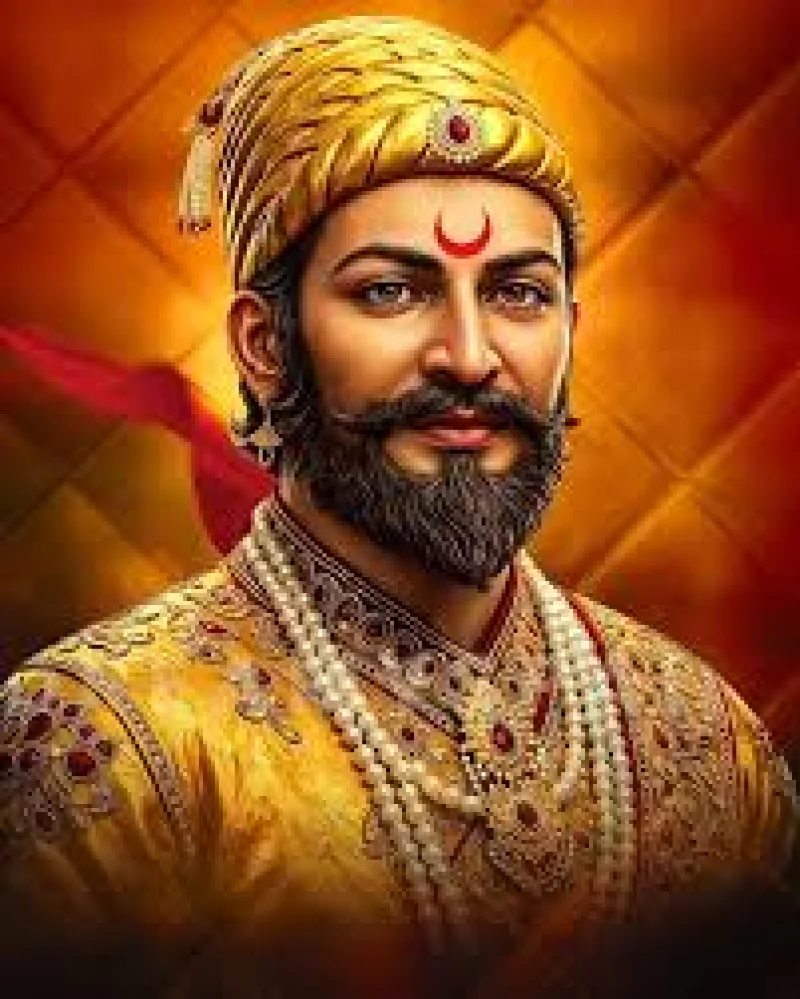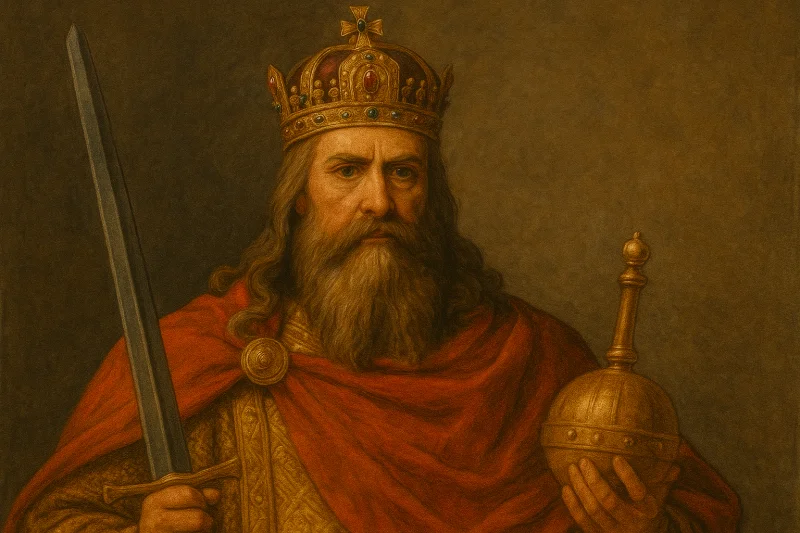Short Summary
Shivaji Maharaj was a prominent Indian ruler and the founder of the Maratha Empire in the 17th century. Known for his progressive governance and military prowess, he established a competent and enduring kingdom by promoting civil rights and religious tolerance. His strategic acumen and innovative military tactics laid the groundwork for a powerful Maratha state that challenged the dominant Mughal Empire. Shivaji Maharaj is celebrated for his vision of Hindavi Swarajya, which inspired future generations in their quest for self-rule.
Early Life & Education
Shivaji Bhosle was born on February 19, 1630, at the Shivneri Fort in the Pune district of present-day Maharashtra, India. He was the son of Shahaji Bhosle, a Maratha general, and Jijabai, whose deep religious and cultural beliefs profoundly influenced him. Shivaji's early education involved lessons in Hindu epics, statecraft, and various martial arts. His mother instilled in him a sense of pride in his heritage, while his guardian, Dadoji Konddeo, played a crucial role in his early military training. These influences shaped his character and laid the foundation for his future leadership.
Career Highlights
Shivaji Maharaj began his military career in his teenage years by capturing the Torna Fort at the age of 16, setting the stage for his future conquests. He expanded his territory through a series of strategic fort acquisitions and battles against the Adil Shahi dynasty and other regional powers. In 1674, he was crowned the Chhatrapati (king) of the newly established Maratha Empire. His administration was marked by a well-organized government, fostering trade, and a strong naval presence to protect the western coast. Shivaji's leadership and innovative tactics made him a formidable force against the Mughal Empire.
Major Achievements
- Established the Maratha Empire: Laid the foundation for a powerful and enduring Maratha state.
- Coronation as Chhatrapati: Officially crowned as king in 1674, legitimizing his rule and expanding his influence.
- Introduced Ashtapradhan: Implemented an efficient administrative council to streamline governance.
- Naval Strength: Developed a strong navy to protect the western coast from foreign invasions.
- Fort Acquisitions: Successfully captured numerous forts, enhancing territorial control and security.
Famous Quotes
- "Never bend your head. Always hold it high."
- "Freedom is a boon, which everyone has the right to receive."
Interesting Facts
- Shivaji Maharaj was known for his respect towards women and implemented strict laws against their harassment.
- His innovative guerrilla warfare tactics, known as "Shiva Sutras," were highly effective against larger armies.
- He built a network of forts in strategic locations, which played a crucial role in his military successes.
- Shivaji's administration was notable for its promotion of regional languages and cultural traditions.
- He maintained a secular approach by respecting all religions and promoting harmony among his subjects.
Legacy / Influence
Shivaji Maharaj's legacy is profound in Indian history, as he is celebrated as a symbol of resistance against oppressive regimes. His emphasis on self-governance and social justice inspired future generations in the Indian independence movement. The Maratha Empire, which he founded, continued to play a significant role in Indian politics for decades after his death. His vision of a sovereign and inclusive state remains influential in contemporary discussions about governance and cultural identity.
FAQ
Q: Why is Shivaji Maharaj famous?
A: He is famous for founding the Maratha Empire, his military prowess, and progressive governance.
Q: What was Shivaji Maharaj's approach to governance?
A: He implemented efficient administration, promoted civil rights, and respected religious diversity.
Q: How did Shivaji Maharaj impact Indian history?
A: He inspired future leaders with his vision of self-rule and laid the foundation for a powerful Maratha state.









